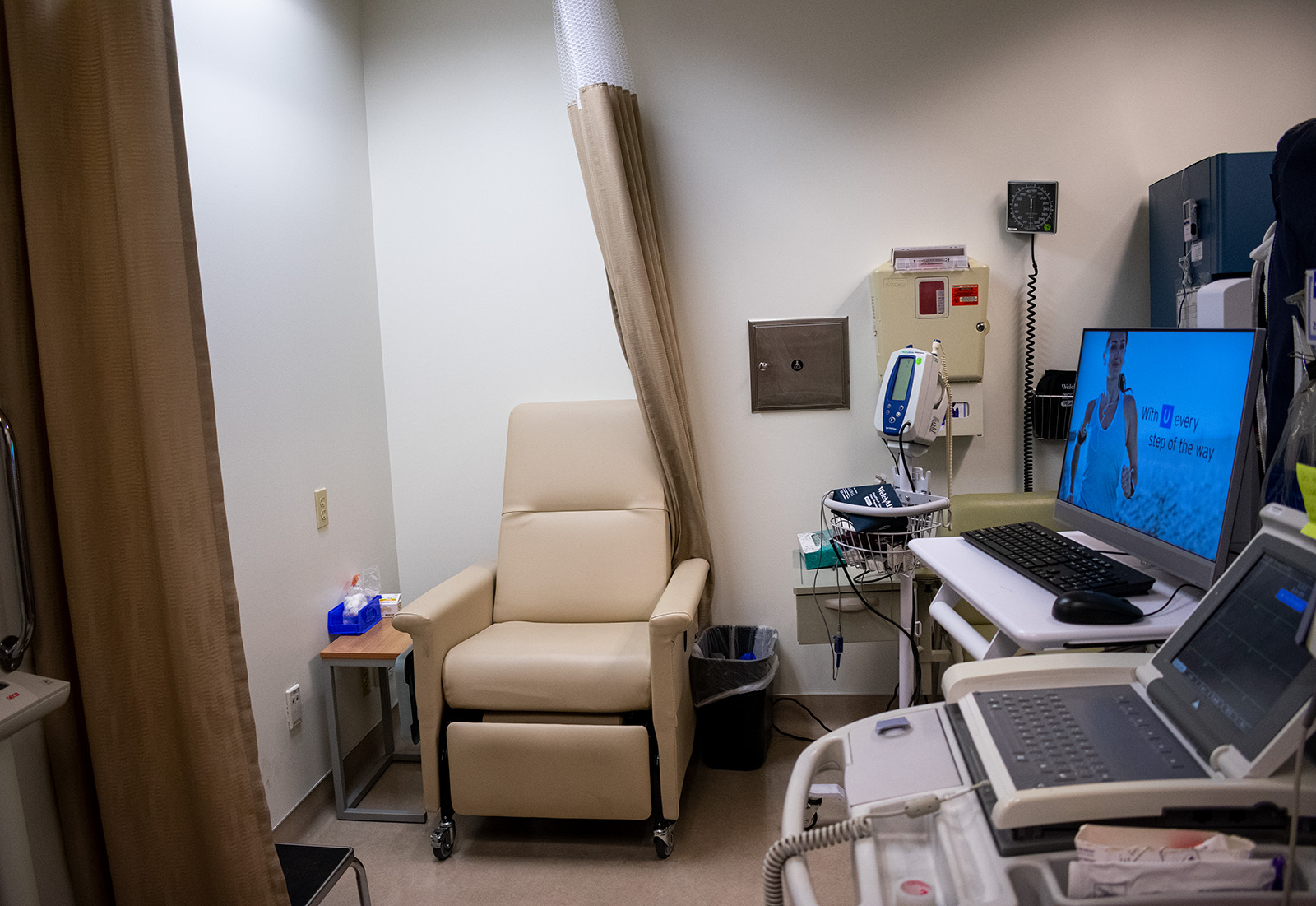UCLA Health for Bruins clinic aims to increase accessibility to campus health care

UCLA Health for Bruins, a clinic for students, opened in September 2018 but has been operating as a pilot program since then. Its physicians hope to offer students health services later in the evening and, eventually, over the weekends. (Daanish Bhatti/Daily Bruin)
By Brittney Le
Nov. 3, 2019 10:12 p.m.
An additional student clinic has been open for a year now, but remains in its pilot program because of low student use.
The clinic, UCLA Health for Bruins, opened September 2018 at 100 Medical Plaza, Suite 490. Run by UCLA Health physicians, it provides care to undergraduate and graduate students.
It was established in order to address issues students may have with the Arthur Ashe Student Health and Wellness Center, such as inconvenient hours and schedule constraints. The Ashe Center closes at 5 p.m. on Mondays through Thursdays, 4:30 p.m. on Fridays and noon on Saturdays.
Health for Bruins’ doors are open from 1 p.m. to 7 p.m. weekdays, and it hopes to increase its hours further if the pilot program ends successfully, said Daniel Kozman, a physician at the clinic.
In addition, the clinic is interested in opening on weekends so students will not have to wait days to have their health care needs addressed, Kozman added.
The clinic takes most insurance plans, according to its website. Students with the UC Student Health Insurance Plan will have to go to the Ashe Center for their primary care needs first but are eligible to visit the new clinic after the Ashe Center closes, Kozman said.
Although the clinic opened a year ago, they’ve had a difficult time spreading the word, said clinic physician Nathan Samras.
“Right now, this population doesn’t know about us, and we’re having trouble telling them about us,” Samras said.
The clinic was opened after a focus group of students voiced concern about their inability to access care with their hectic schedules, Kozman said.
The focus group consisted of students who were taking a maternal and child health class taught by Alice Kuo, physician and professor of health policy and management, Kozman said.
“Now, this is a group that is more inclined toward being interested in health care,” Kozman said. “But even for a group that would be more health-care-focused, they were citing some major concerns related to their own ability to access care. … It was very concerning to us.”
The clinic aims to overcome common barriers to medical care for students, such as distance from an accessible clinic, the lack of after-hours access or schedule constraints, Kozman said.
Additionally, 20% of students from the focus group stated they forwent care simply because they did not know where to go, Kozman added.
Students choosing to forgo care for these reasons could have disastrous consequences for them in the long run, Kozman said.
“If somebody’s forgoing care and it’s just a common cold, that’s fine,” Kozman said. “But if they’re forgoing care and it ends up that cough that they’ve been having is actually pneumonia, that can result in (a) major complication, emergency room visit and/or hospitalization.”
Students who do want to seek care but have health issues in the evening may be discouraged by long wait times in the emergency room – the closest health care option available after 5 p.m., Kozman said.
“One concerning thing that really came out was that in discussing with the students, about 27% reported accessing the (emergency department),” Kozman said.
Two-thirds of those students would have preferred to be seen in the clinic and students had more issues they felt would be more appropriately addressed in a clinic, Kozman added.
Samras said the emergency room is good at treating situations deemed urgent or emergencies. However, cases that are not considered urgent may take time to be looked at.
“If it is, for example, not a heart attack and you’re about to die, then it will take a little bit longer,” Samras said. “And that’s not a flaw with the (emergency room). They in fact are very good at what they do. And part of that is to triage what is emergent and what is not.”
Justin Yi, a fourth-year physiological science student, said he liked the idea of having another health resource available for students.
“I think it’s good to have two resources or another resource on campus because Ashe, it’s good, but to get an appointment can be sometimes difficult,” Yi said. “I think if you have another option, it’s probably for the best, and I’m surprised they haven’t done this sooner.”
Health for Bruins has also partnered with UCLA Counseling and Psychological Services to provide both short- and long-term mental health services, Kozman said.
“We’ve met with CAPS staff multiple times over the last year,” Kozman said. “They refer patients that they’re concerned about for urgent mental health needs that, for whatever reason, weren’t able to be seen at CAPS.”
The health clinic hopes to grow in its future to provide for students, Samras said.
“It would be a bummer if we had two ships pass in the middle of the night,” Samras said. “There’s a need for increased health care resources for the young adult population. We provide (for) that need.”


